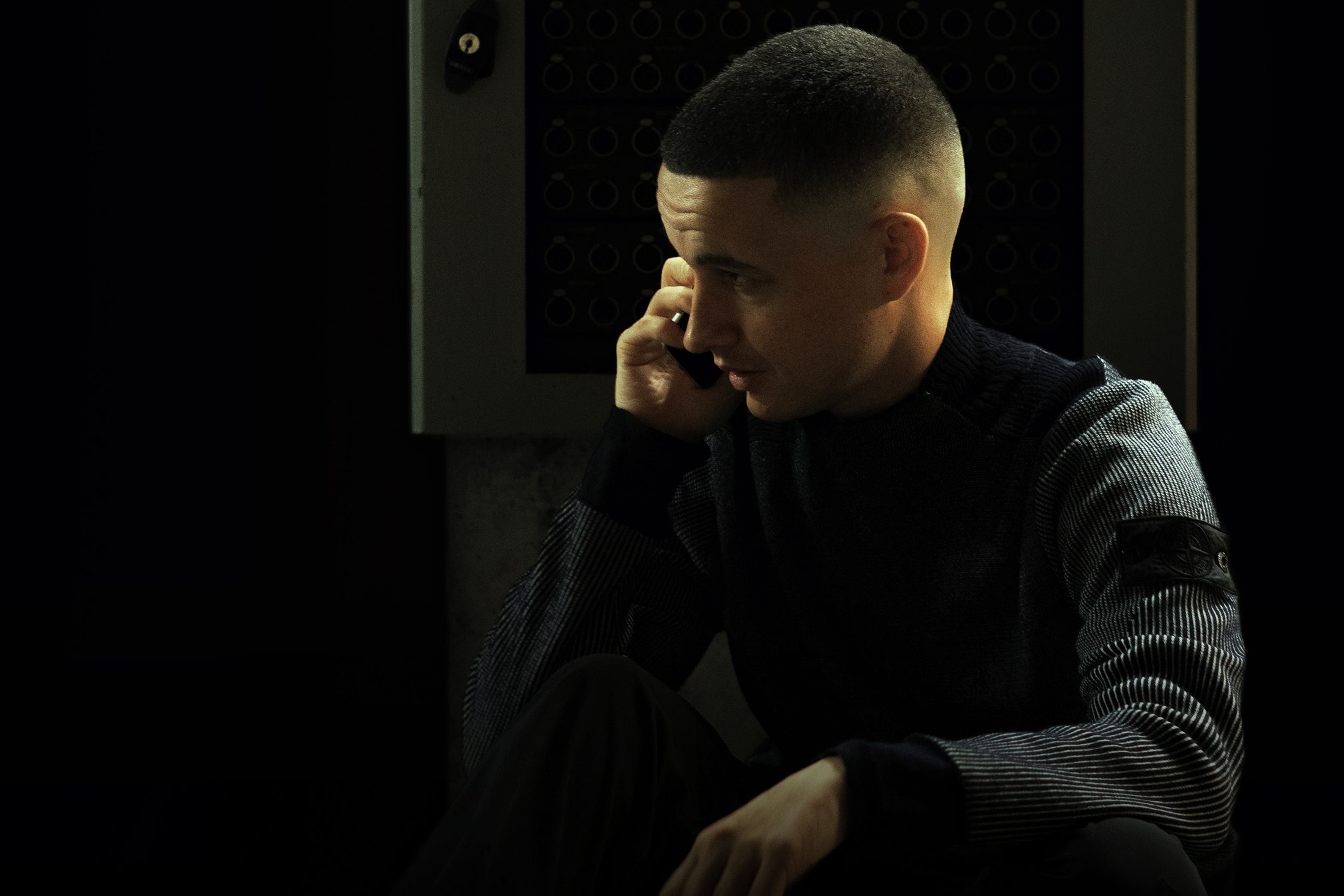 Features
Features
Obliterate the club: Why apocalyptic trance is Evian Christ's artistic calling
Evian Christ speaks to Megan Townsend about his unironic love of trance, pursuing the sublime, and laying waste to dancefloors
Evian Christ is the first to admit he has a tendency for extremes. He wants the biggest smoke machine, the hardest kick drum, the brightest lights, the most intense basslines. “My instinct is always flying at the speed of sound into the sun sort of thing. It's not castles in the sky. It's beyond that, it's the apocalypse.”
His pursuit of the “sublime” forms much of the basis of his long-awaited debut album ‘Revanchist’; a concept that he describes as a feeling of bliss and exhilaration that borders on discomfort, a state of “euphoria as horrifying, as it is enjoyable. It’s beyond what you can comprehend.” He compares it to a tornado or “a massive sunset, but the sun is 20 times bigger than it should be.” This maximalist outlook stands in contrast somewhat to the mild-mannered lad waiting for me at one his favourite Ellesmere Port boozers, decked out in a black Arc'teryx jacket, happily chatting away to the bar staff as they hand us each a pint. There’s always a feeling of juxtaposition with Evian Christ, real name Josh Leary, which may go someway in explaining why he has become one of the electronic world’s most fascinating characters; intimidating in his preference for the otherworldly, while simultaneously personable in his tongue-in-cheek irreverence and equal love of the perceived high and low brow. He’s an enigma, an agent of chaos and the guy you’ve always wanted to chat about football with — all wrapped into one.
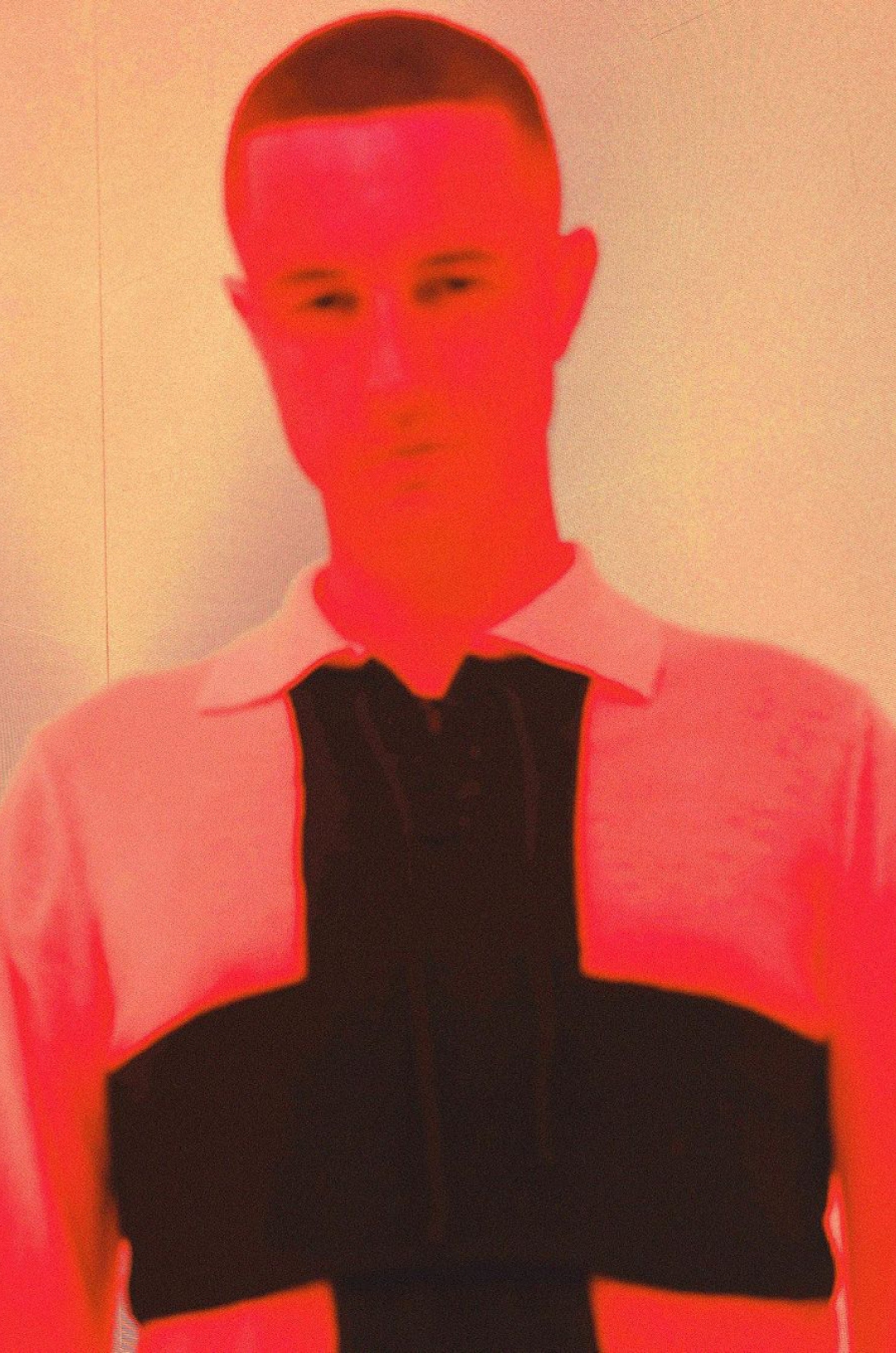
He rarely does interviews, and the majority of those online are from when he was still in his early 20s; telling the “unlikely” story of a trainee-teacher-turned-producer-wonderkid, who managed to overcome his small town background to catch the eye of Kanye West. But it’s now 2023, a decade on from ‘Yeezus’ and the early work that earned him the intrigue of both the mainstream and underground. He’s no longer a wonderkid, but an artist with an unclouded air of resolve; Evian Christ knows what he likes, he knows what he wants to create and is hell-bent on making even his most implausible visions become a reality.
Read this next: The Cover Mix: Evian Christ
His obsession with the sublime is an effect of a teenage fixation with watching helicopter and plane crashes, or videos of firework displays gone wrong. “That stuff makes you feel exhilarated, in a way. If you look at the lighting that I do at my shows, it makes sense right? That’s the best way I can put it. It’s like chaos and destruction and the visual representation of that.” It is one of reasons has remained true to trance, a genre that he believes has “latent potential” to communicate the sublime. “Trance music feels like an appropriate sound to approach technological destruction. I think most trance music out there just stops short of it, so I made it my mission to push it further, even if you lose some of its functionality.” ‘Revanchist’ is perhaps an ideal representation of this mission, constantly switching between the pleasurable and spine-tingling; pairing up tear-jerking strings with severe, compressed basslines and pushing up the percussion in his cataclysmic drops to the knife edge of becoming unsettling. “I’m just trying in a vague way to capture something instinctive. I like watching helicopter crashes and I like trance music, and it’s like, what does that mean? I don’t know, but I'm very informed by how that makes me feel and I try to make everything I do look and sound like that.”

While retaining trance at its core, the record employs elements of hardcore, hyperpop and techno. The relentlessness of first single ‘On Embers’ feels removed from the savage beauty of the Bladee featuring ‘Yxguden’ - which in turn contrasts with the glittering melancholy and ominous feel of the ‘The Beach’. There is a cohesion in his approach to that sublime quality though, something that is even more surprising when you discover that the tracks on the record were created at different points in the last nine years. Fans have been waiting in suspense for his debut LP since signing to Warp in 2015, with numerous theories having been suggested as to the reason for the delay. Though Leary insists it is far less complicated than observers would believe. “People are like ‘you've been away for years’,” he tells me, seemingly resisting the urge to roll his eyes. “I've been doing live shows and Trance Party. I'm doing shit. It's just not in a studio. That's a very difficult thing to communicate to the wider music industry. But I also don't give a shit, I don't view myself as being a genius musician or a genius producer.”
Read this next: Always euphoric: Evian Christ's Trance Party shows no signs of coming down
“I'm not talking myself down,” he clarifies. “I know that I'm just really good at other stuff. I make good music, but actually sitting myself down at a computer and writing, that's not what I would say is my best talent. I think I just have a different process to a lot of other artists, I don’t get that same excitement in going to the studio.” He believes that his early rise to prominence as a producer in the early 2010s has created the sense of expectations around his productions, adding “you just get put into a box as an artist. I mean, no one gives Ben UFO shit about not releasing music. All I did was one mixtape and an EP and everyone was like: ‘Where's the album! Where's the album!’ I'm DJing every fucking weekend, what do you want?”
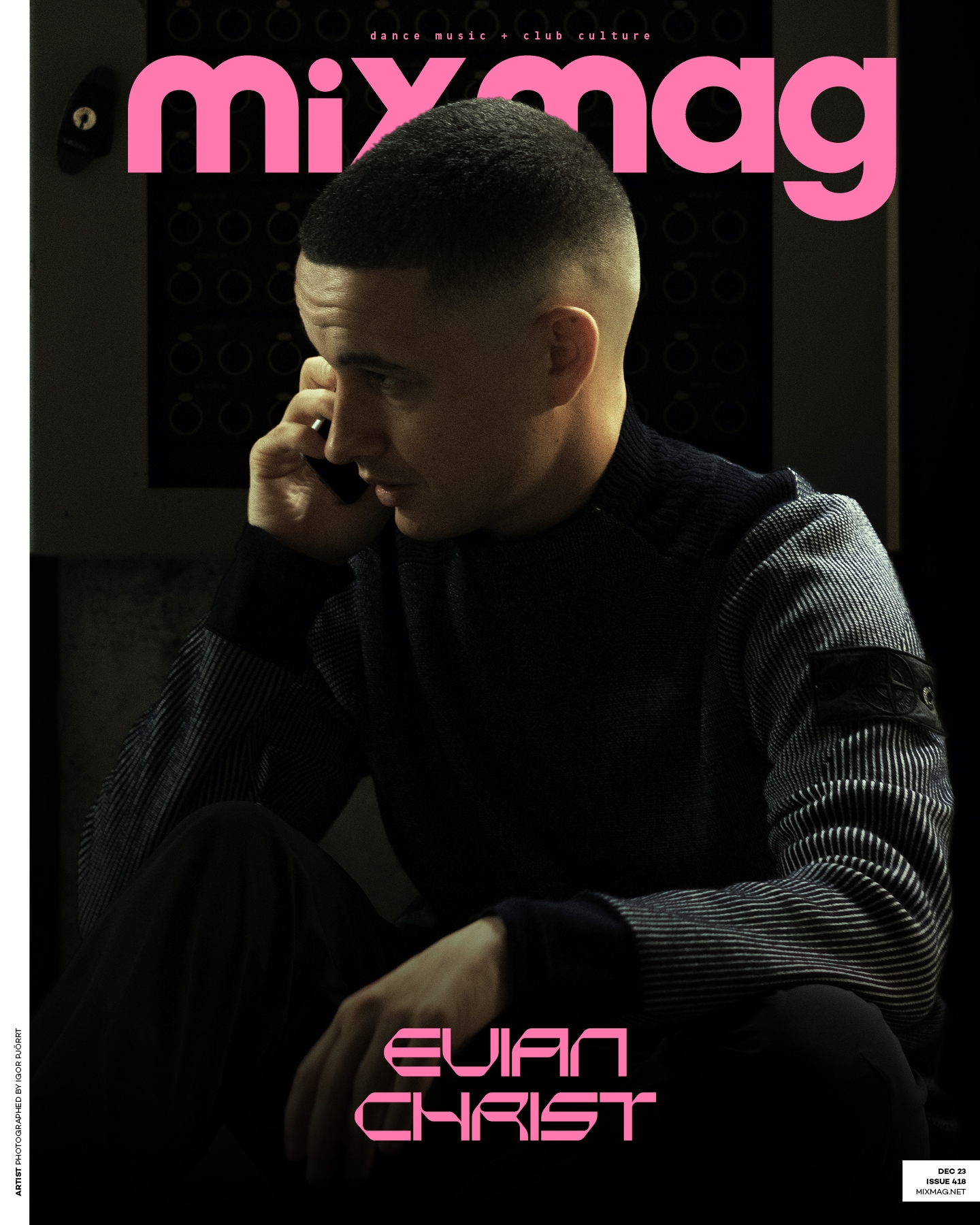
As we talk, Leary regularly reiterates that he believes that early rise had little to do with his talent as a producer, and more complete, blind luck. “[The first mixtape] was good, but it wasn’t exactly the best record of the decade or anything. It was all the stuff around it, it wasn’t my design, let’s put it that way.” The “stuff” he is referring to, is the weeks-long search for his identity after his tracks were discovered on YouTube by a journalist at DUMMY in 2011. The music was discovered just nine months after he had first tried his hand at producing, a journey that began after connecting with Ninja Tune-affiliate, and one half of Rezzett, Lukid on MySpace: “He added me on MSN, then helped me get set up,” he says. “I looked up to him so much, and he took the time for no real reason to just help me out with shit.” He credits Lukid with introducing him to footwork Planet Mu and ambient music, as well as introducing him to fellow producers Lil Silva, Bandshell and Actress. “We’d all play FIFA, that was kind of what actually made it work. We had a pro-clubs team, a few of my mates from the ‘Port played in it as well. It's mad.”
“I'd be sending Luke [Blair, AKA Lukid] the worst music you ever heard in your life, and he'd be like ‘keep going’,” he laughs. “Then one day I sent him the Evian Christ stuff and he was like, this is actually quite good.” Lukid shared the first Evian Christ tracks to his Facebook account, where it was spotted by then-DUMMY editor Ruth Saxelby, among other writers. Leary was signed to Tri Angle not long after, a decision he came to due to noticing that the imprint had signed A$AP Rocky collaborator Clams Casino. “That was pot luck too. It all ended up being a complete lottery win.” He says that despite this early success branding him a producer savant, it also allowed him to “skip a stage” in his career. He didn’t have to network, or move to London, or compromise on his vision. “Once you’ve played a few shows, and there’s this buzz... You’ve not made it, but you’re in a pretty good place. It’s so fun for me now, because rather than having to do any try-hard, experimental stuff, people just want me to play all the music I liked when I was 17,” he says. “And I’m like, I can do that… definitely.”
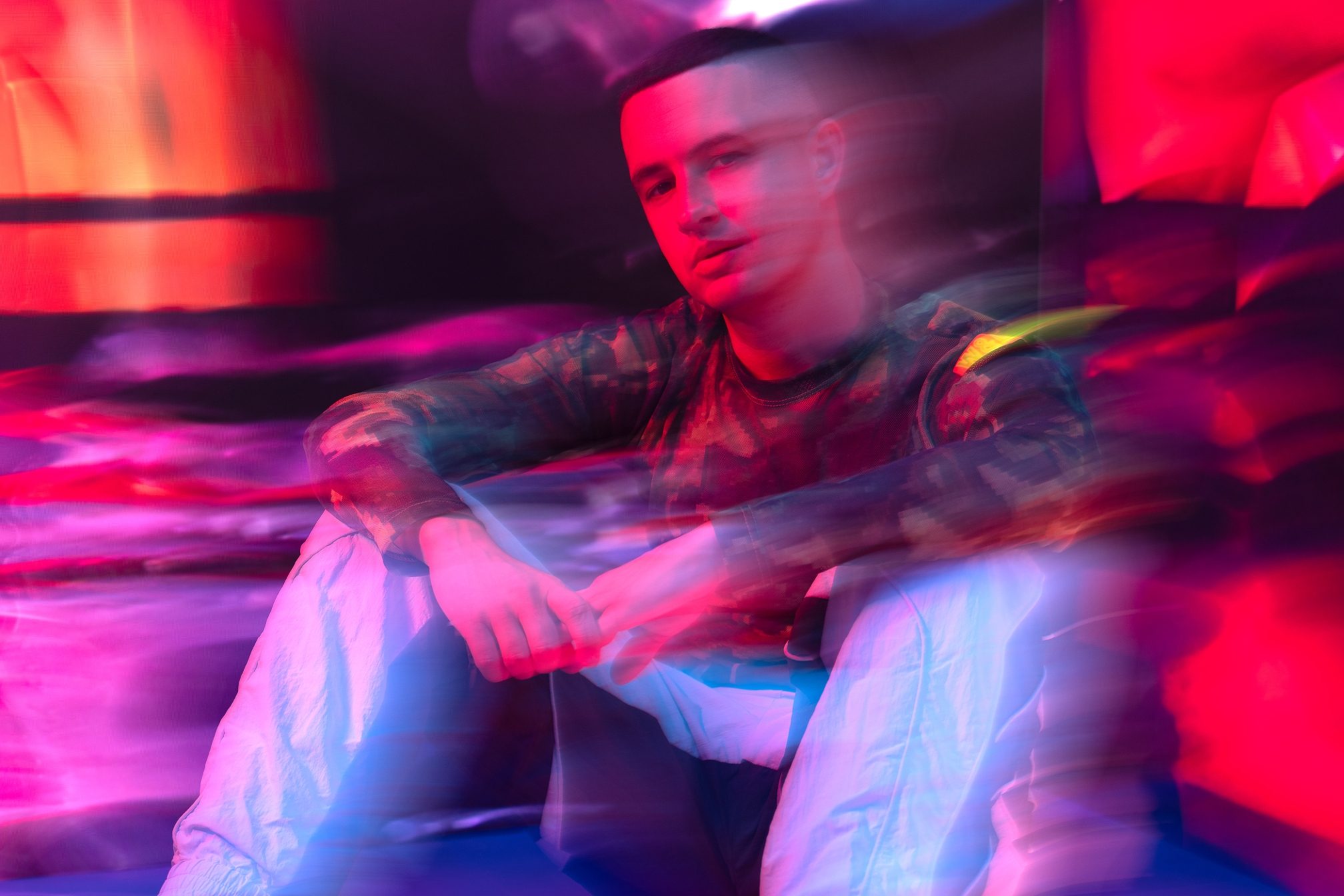
The music he grew up on, is a key driving force behind the Evian Christ sound. I ask what was the first tune, or album that he heard that gave him a realisation that he loved music and he answers without skipping a beat “Wipeout on the PlayStation 1. Chemical Brothers were on it, The Prodigy, Leftfield, Orbital, Cold Storage. I was obsessed with it.” His love for dance music was solidified when he was “around eight or nine” he says, on car journeys with his trance-loving stepdad “He had this bright yellow Fiat Coupé and he’d drive us around listening to Essential Mixes, it was class. I’d go to HMV or Asda with my mum, and then beg her to buy me Positiva or Hooj Choons CDs,” he laughs. “I remember going on holiday to Fuerteventura, and I borrowed my stepdad’s Walkman and just listened to Gatecrasher compilations for the entire week. I was just really into druggy dance music when I was eight or nine basically.”

Despite the fondness with which he talks about his childhood obsessions, he’s less inclined to get retrospective when it comes to his own releases. He rarely listens back to his own music, and hasn’t listened to ‘Revanchist’ since it was sent off for mastering — he hasn’t even listened to ‘Yeezus’ yet, despite this year marking 10 years since its release. “It hit me out of nowhere that,” he explains. “I was in the airport a few months back and saw it on Twitter, and I sat there by myself and thought ‘should I just listen to it and think about everything that has happened since then?’ But I decided not to in the end, I just did a Tweet. So I still haven’t.”
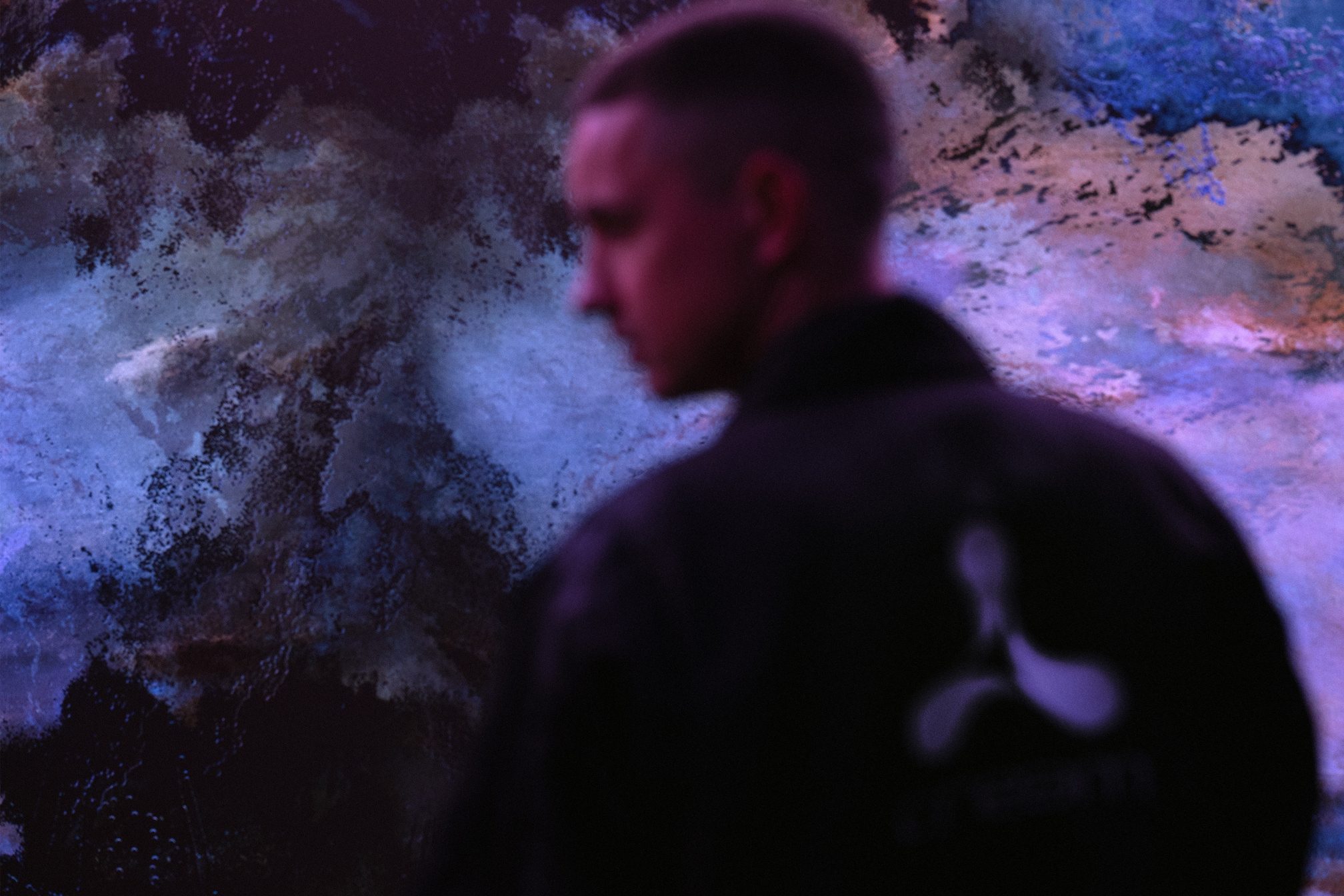
It could be argued that his journey towards the Evian Christ we now know and love, began after trying his hand at producing for majors as a result of signing a publishing deal with West’s Donda. “I did give it a go,” he tells me. “But then they’d just get me in with someone who’s done vocals for Disclosure or indie bands. Putting me in the studio with a band?” he says, motioning to himself. “I don't fucking know how to record a guitar, I don't even know how to turn the mic on.” He recalls being sent to “writing camps” with hundreds of other producers and songwriters to help generate ideas for pop stars like Rihanna and Lana Del Rey, likening the experience to speed dating. “At the end of the day, the geezer from the label will come and pick two tracks. Those two tracks will be sent to Rihanna’s assistant who’ll pick one, then Rihanna will skip through it and say no. I was like, fuck this. Absolutely not. It’s a bit like watching How It’s Made, you know? Where they go behind the scenes of a factory and show you how they make pork pies. I realised I didn’t want to do it anymore, this system wasn’t for me.”
It makes sense then, that just two years after the release of his first mixtape, he would kick off the first of his now-beloved Trance Party events — a party intrinsically of his design, and a counter to what he describes as the inherent “seriousness” of the scene he encountered in the early 2010s. “Electronic music was trying to position itself as something like politics, you know? ‘Take us seriously, we also have academic credentials!’ I saw that, and I wanted to do the opposite,” he says. “I wanted you to go to Corsica and feel like you were at Tiger Tiger. It’s obviously never really going to be that, the music’s too weird. But I want it as much as possible to be where you show up and have fun, it doesn’t have to be pretentious. Come, hear some DJs play some music you’ve never heard before. It’s not to get enlightened or something.” This has remained one of the core principles of Trance Party, combining the leftfield with that distinct sense of humour — something that is present from who the party books, to its artwork, to how he decorates the venue, to even the drinks specials behind the bar (see the ‘trance bellerini’, which consists of prosecco and blue WKD). Where else would you be able to hear a happy hardcore rework of Nicki Minaj and the experimental stylings of Tzusing, all while you try to complete a France ‘97-themed crossword puzzle on the posters pasted across the dancefloor? He admits there is “little rhyme or reason” to the Trance Party bookings, having hosted everyone from Altern-8 to Laurel Halo, Travis Scott to Yves Tumor, Scott Brown to SOPHIE, Varg to Hannah Diamond — it was even the setting for bassline boy band Bad Boy Chiller Crew’s first show outside Bradford.

“I knew that they'd get big, I didn't realise how massive,” he says. “It was the first time they’d been in front of a London crowd, so I tried to prepare them for it.” I ask if he feels a sense of responsibility when he brings in artists from smaller towns and cities around the UK, who wouldn’t usually be found on more avant-garde line-ups, to introduce them to unfamiliar spaces. “Completely, 100%. I’m really grateful for parties that do that,” he describes feeling overwhelmed during his first appearance in London, a Tri Angle showcase headlined by The XX’s Romy. “I'd never been to a club like that, I definitely wasn’t exposed to this experimental art and fashion scene,” he says. “I never really imagined what kind of crowd would be into my music back then, but I assumed it would be people like me — then you get there, and it’s people with green hair and piercings, everyone is really cool. The whole thing was weird. Robin [Carolan] from Tri Angle was trying to keep me away from everyone, I think he thought I was going to freak out and kick someone’s head in,” he laughs. “A bit like me with ‘Chiller Crew. But it wasn’t that, it was just overwhelming.”
Read this next: Bad Boy Chiller Crew: The rowdy Bradford rappers taking bassline to the masses
He proudly recalls hearing Marky B describe his appearance at Trance Party on the Sluggy Beats podcast, describing wanting to “get in his car and go home” when he first arrived upon encountering the alien environment of Corsica’s smoking area, but after getting on stage - and having the crowd scream his lyrics back at him - the show ended up being his favourite ever gig. “It's not about parading something. It works both ways.I think we’re past that point now, where everything is ironic. It definitely was like that in the past, even with Trance Party, saying you liked trance in 2014 was a guilty pleasure, he says. “But we’re so far past that now. I book MC Tazo and the people who come are sitting on SoundCloud listening to Makina all day.”
“This music deserves the audience it has, and now it does have that genuine audience. We’ve come a long way from the Vice documentary on donk or whatever.” For Leary, the current love these genres are getting from the electronic world feels like a full circle, having spent a decade trying to demonstrate why the music he loves deserves a bigger platform. “I think maybe 6-7 years ago everyone just thought trance was bait. Now I can go play a show in Amsterdam or New York and play happy hardcore or whatever and everyone just loves it. There’s no cynicism or irony, and it feels incredible because I hope we kind of helped make that happen.”
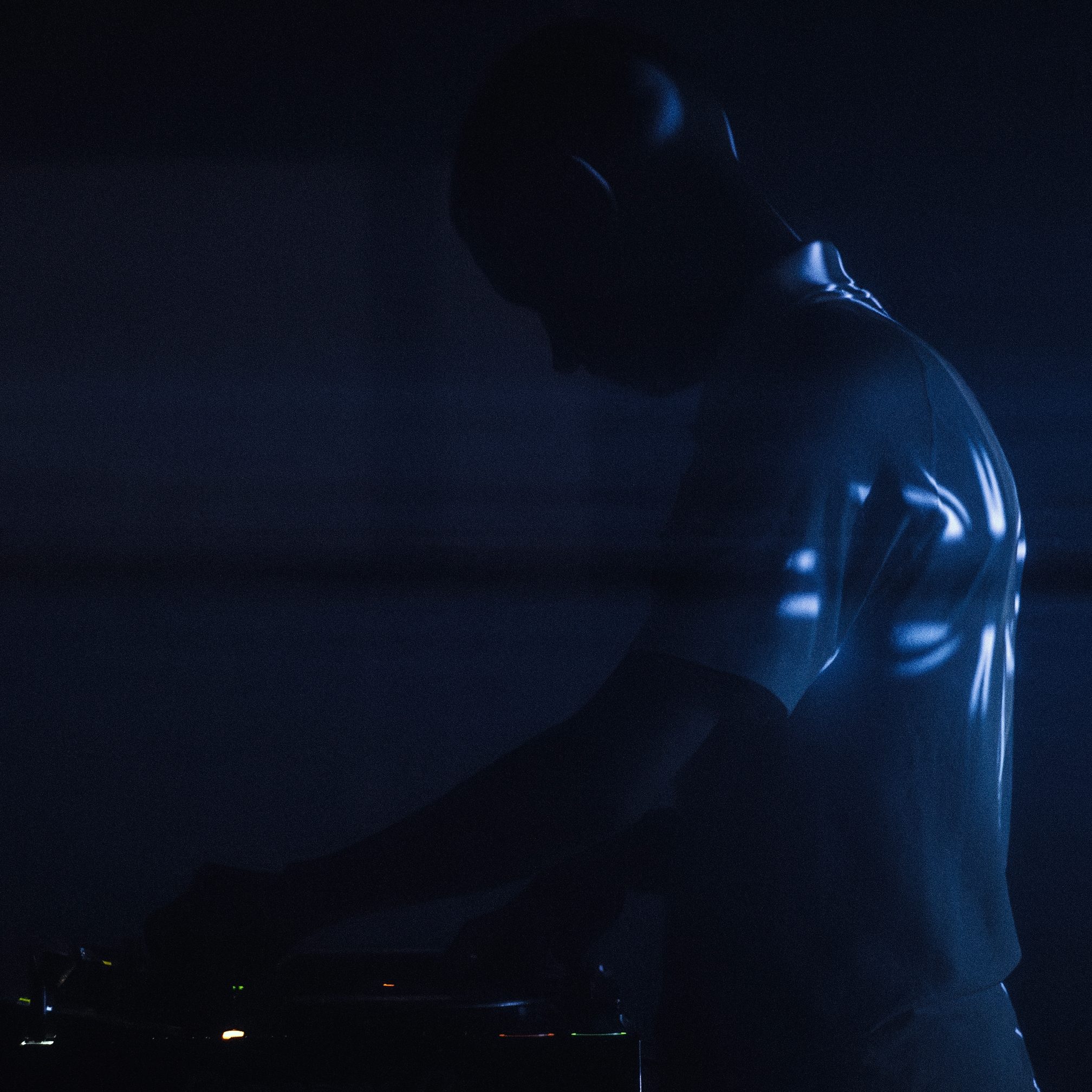
Despite his irreverence, Leary is clear that the sense of humour present in his parties and in his sets isn’t from a place of irony; he really is as partial to the music of Caterina Barbieri as Pitbull. As Ellesmere Port’s Station Road grows darker outside of the pub’s windows, and the mini soundsystem behind the bar starts pumping out chart bangers for the Friday night regulars, he stops himself in the middle of a detailed explanation of how his gas-powered Xenon strobe lights work to comment, “fucking love this tune,” as Calvin Harris’ ‘Let’s Go’ permeates the room. His signature, bewildering strobes, by the way, were chosen due to the fact they remain the brightest you can get your hands on — unlike modern LED alternatives. He first discovered them when preparing for a live show at Unsound in 2014, “The lighting guy was turning them up and down, and I said: ‘What if we just leave them, and don’t bring them back down’ and it looked so sick,” he laughs. “He said ‘but yeah, it’s pretty uncomfortable’ I was like ‘it’s not that uncomfortable, what if we had like 20 of them. Could you get 20 of them?’” He laughs. “The guy was like ‘yeah, but that would be insane’ So I got 10 of them and tried it out.”
“Now they are always on my rider, I tell promoters: I don’t need a hospitality rider, I don’t need a nice hotel, I don’t need a crate of beers or expensive spirits. You don’t need to look after me, I don’t need a fancy meal. Just let me bring these strobe lights, let’s just obliterate the place and go home,” he says. “Some people can’t handle it. It’s either horrible, or it’s out of body incredible. I’d rather have that. I’m not really interested in making people dance. I kind of want to break people,” he says. The strobes are another way for Evian Christ to pursue the sublime, though he admits that they remain a nod to the traditional tropes of what trance production should be. “We still have the strobes, the lasers, etc - but instead of matching a laser with the percussion on a drop or something, instead I'm doing the opposite. They are a constant presence.”
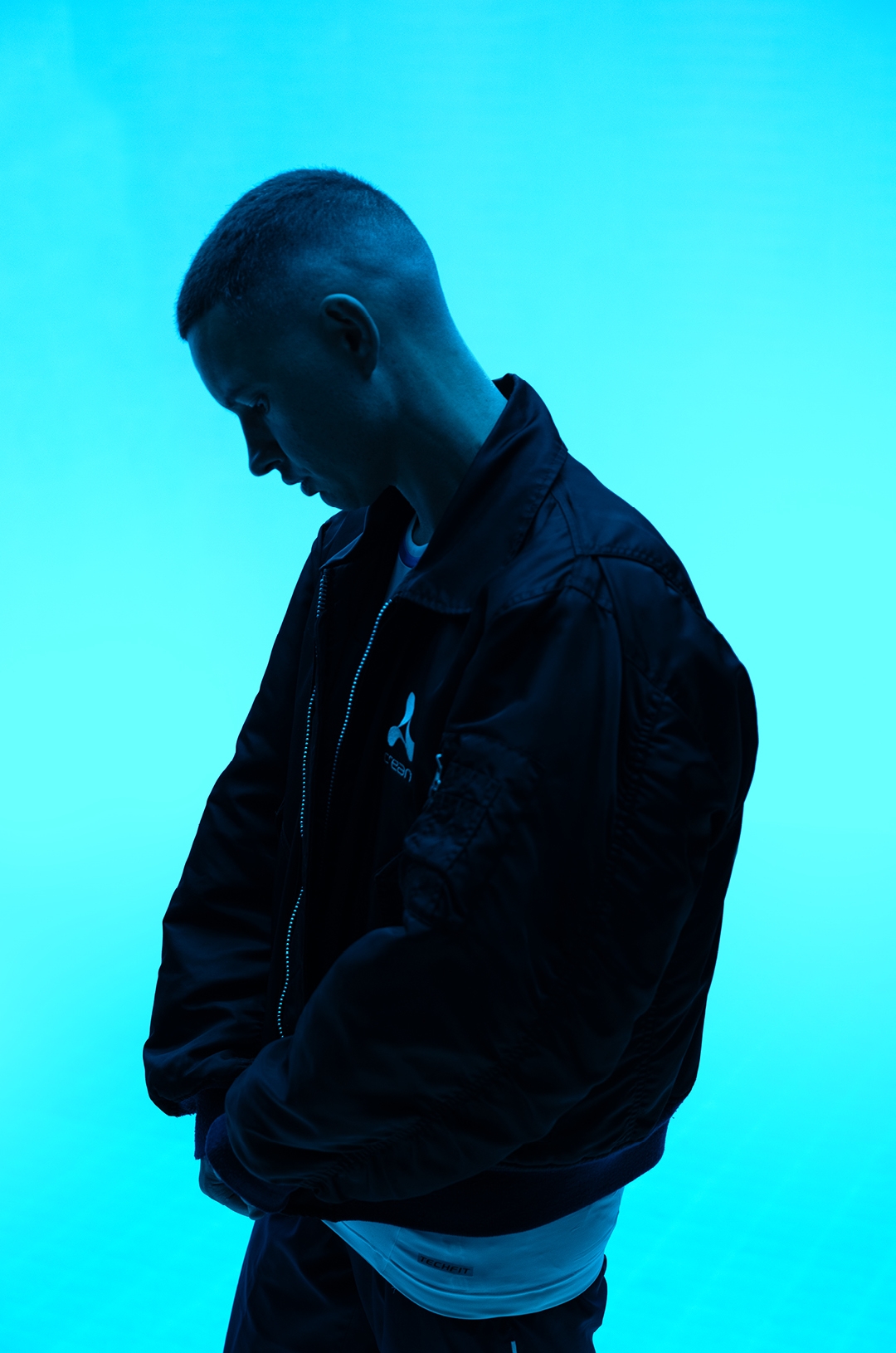
As we chat, the final touches are being put in place for his run of Trance Party live shows, with stops planned in Manchester, Barcelona, London, New York, C2C festival and more; having material to play in those live sets was a key driver behind getting ‘Revanchrist’ to completion. “I’m pretty sure it’s my artistic calling,” he says. “I feel like I'm at the top of my game when it comes to live shows. That’s why I pour my effort into that. Sitting and making electronic music, I love doing it and I’d be lost without it - but for me, it comes secondary to that.” He has an air of wonder as he continues. “I feel alive when I’m on stage, and I have four CDJs and the strobe lights are so blinding I can barely see the mixer. That’s when I’m in my zone. I’m sure there are people who feel the same way when they are in the studio, but I don’t.” I ask him when was the last time he felt like that, and though he insists it is “all the time” he recounts a recent appearance at Draaimolen festival playing b2b with Torus. “I played Mark Otten ‘Libertine' and when that dropped I was just like…” he sits back, and places his head on the back of his chair. “I'm just so happy at that moment. To see this big billowing cloud of smoke, and a load of lights, and to be able to hear that song really loud — I can't describe how happy that makes me. When I have to stop doing this, I'm going to really struggle with not having that anymore. Because it's the best feeling in the world.”
There are numerous points as we chat where I question if there is an element of self-deprecation in his own commentary - or in some cases lack thereof - when it comes to his work; even a reluctance to really dig into how he has seemingly captured the imagination of so many dance music fans. Though as he talks about his live show, and the live elements of his DJ sets, of blinding people with strobes and playing his own crafted edits of his favourite music, there’s a clear sense of determination in what he wants to achieve. His shows are not the platform with which he can showcase his knack as a producer, but instead, they are where the Evian Christ project begins and ends — a gateway into the sublime, “This is it, you can’t go on Spotify or Discogs and listen to the strobes, or feel the smoke. You have to go see it in person,” he says, placing his hands behind his head. “So that’s what I’ve been doing for the past 10 years.”
Evian Christ's debut album 'Revanchist' is out now via Warp Records, get it here
Megan Townsend is Mixmag's Deputy Digital Editor, follow her on Twitter


